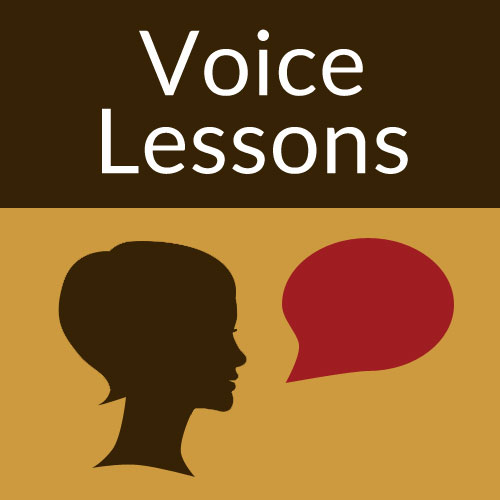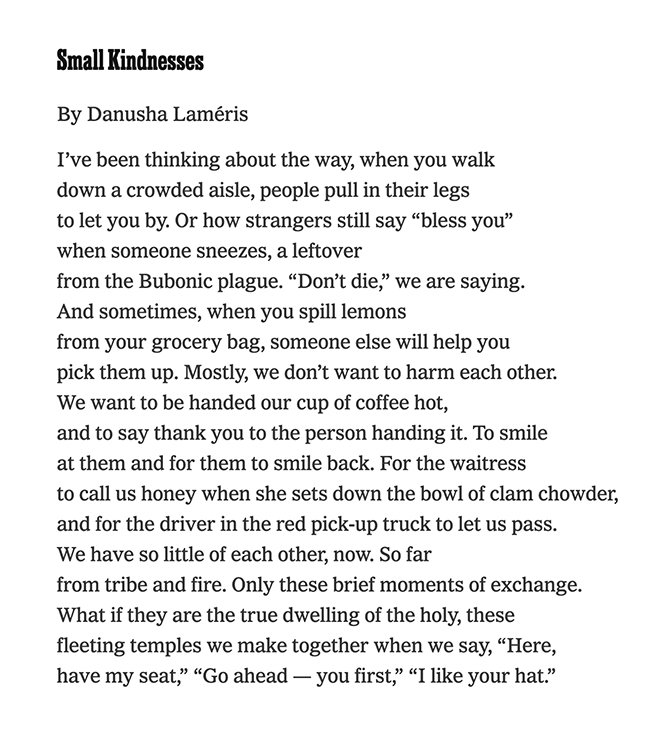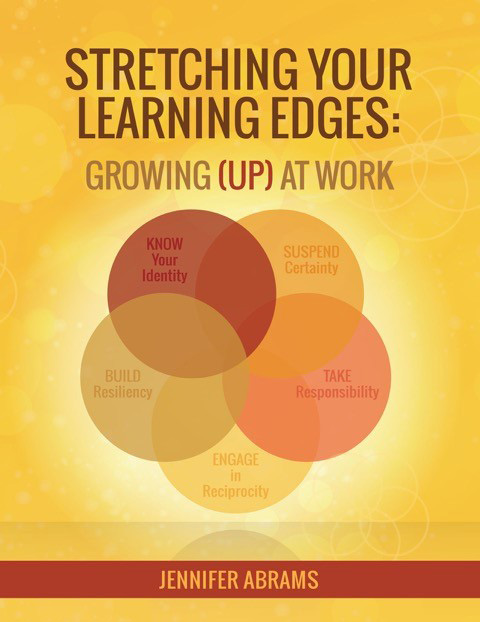We Are In The Same Boat
October 3, 2022

There have been many moments over the past month where I have worked on my patience. Waiting for a bathroom on an airplane. Waiting for the person in front of me to see the light is green and to start moving through the intersection. Waiting for the family or couple in front of me to take the perfect photo on their vacation. Waiting for the email with the response I need for me to move forward. No doubt you are often in the same boat.
We are in the same boat a lot. Actually, we ARE in the same boat. We are in community. ALWAYS. And we need to remember that fact. So, given that WE are not in isolation but in community, each one of us needs to ask ourselves how might I learn to be a better group member and an even better value add to my community? Patience is one of my stretch learnings but there are so many more. In the most current work I do with Stretching Your Learning Edges: Growing (Up) at Work I ask others, “Where do you need to stretch in order to work with others in even more respectful ways?”
Some participants at my workshops have a crunched up face when this question is posed. They mention to me that after years of learning about their content and their instruction it is confusing and actually a bit uncomfortable to learn that it is also essential to learn how to work with the adults in the school. “This ‘We’ stuff is a lot,” they say. Yes, it is. And in spite of it being a lot and a stretch edge for so many of us, it is necessary. In our schools. In our communities. In our world.
Engaging in Reciprocity
What it is
- Willingly moving oneself from isolation and separateness to a connection to and concern for community.
- Recognizing the worth and dignity of all those with whom one works.
- Taking joint responsibility to complete work with others in a mutually respectful manner.
- Recognizing that working together is essential to creating anything significant and that accomplishing tasks requires engagement and effort beyond one’s self.
Why it matters
- Honoring individual team members and valuing each person’s gifts and contributions to the community is critical for a workplace that is grounded in a shared future.
- Is essential to creating and moving forward significant initiatives in a workplace.
- Enables organizations to build and achieve their collective potential.
What it looks like/sounds like
- Demonstrating a belief in the worth and dignity of all individuals with whom one works by modeling supportive and productive team behaviors: active listening, questioning, offering suggestions, and verbal and nonverbal behaviors that exhibit respect, show personal regard.
- Using language choices that demonstrate a belief in each group member’s contributions.
- Willingly participating in experiences that support the group’s mandate and vision.
- Consistently supporting others and their development as group members.
In October and November, I am doing a new version of my Stretch work with my colleagues at NoTosh. We are doing it in a week of short bursts of learning, followed by a month of implementation of these ‘stretches,’ with office hours where you can get support, followed by another week of community engagement where you can learn with and from others about how they are stretching at their workplaces and where we can learn together.
Working together is essential to creating anything significant and that requires that we engage and work beyond ourselves. We are all in the same boat while we are here so let’s be better with one another. The poem below expresses it more eloquently than I can. See you in the workshop or find me to design something that suits you and your community. Be well.
P.S. If you grab your spot on Mastering Communication before October 3, you’ll get a massive 33% off. Drop a line to hello@notosh.com if you want to get five or more spots, or if you’re a state school, and they can organize further discounts. After that date, I’ve got a code that gives anyone 25% off: checkout online or quote it in an email requesting an invoice. You can also use the code JENNIFERFRIENDS2022 at checkout.

If you have any questions, comments or topic suggestions, please feel free to email me at jennifer@jenniferabrams.com. I look forward to hearing from you.
Cool Resources
Educator Bandwidth: How to Reclaim Your Energy, Passion, and Time by Jane A. G. Kise and Ann C. Holm – Being an educator is more stressful than ever, and teachers and administrators must constantly shift gears to stay on top of the newest initiatives and students’ ever-changing needs. Educator Bandwidth: How to Reclaim Your Energy, Passion, and Time provides the tools and strategies to reduce stress, avoid burnout, and regain the time that gets lost to interruptions, temptations, competing demands, and task-switching.
My friend, Mike Rutherford, has a new way to capture online a student’s development in your class. Growth Over Time Learning (gotLearning) allows teachers and students to curate and share learning evidence to easily show learning growth. This is truly a new way for teachers and students to partner in the co-creation of learning. The important tasks that your students do daily to help them learn new concepts and skills can be captured to tell the story of their learning all in one spot. gotLearning provides an ecosystem that enables students and teachers to capture and dialogue about the important evidence that happens throughout the learning cycle. And, because it is so student friendly, the teachers no longer have to be the holders or managers of this important learning data. The students truly become partners in capturing and telling their story of learning.
What Did You Learn in School? Garrett Bucks has written a powerful essay on Substack about what he learned by being a student that I encourage you to read. We need to remember that we learned a bunch more in school than what was overtly taught to us. What did you learn in school that wasn’t on the syllabus?
Getting Along: How To Work With Anyone (Even Difficult People) by Amy Gallo
In Getting Along, workplace expert and Harvard Business Review podcast host Amy Gallo identifies eight familiar types of difficult coworkers—the insecure boss, the passive-aggressive peer, the know-it-all, the biased coworker, and others—and provides strategies tailored to dealing constructively with each one. She also shares principles that will help you turn things around, no matter who you’re at odds with. Taking the high road isn’t easy, but Gallo offers a crucial perspective on how work relationships really matter, as well as the compassion, encouragement, and tools you need to prevail—on your terms.

